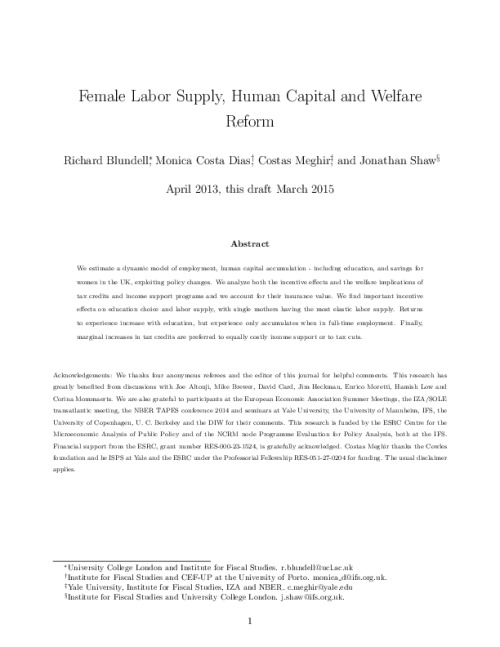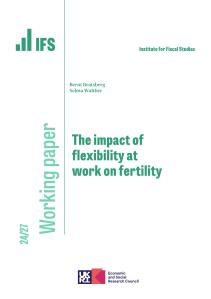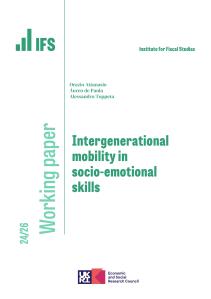Downloads

Dias_NBERwps_2015.pdf
PDF | 916.94 KB
We estimate a dynamic model of employment, human capital accumulation - including education, and savings for women in the UK, exploiting policy changes. We analyse both the incentive eff ects and the welfare implications of tax credits and income support programs and we account for their insurance value. We nd important incentive e ffects on education choice and labor supply, with single mothers having the most elastic labor supply. Returns to experience increase with education, but experience only accumulates when in full-time employment. Finally, marginal increases in tax credits are preferred to equally costly income support or to tax cuts.
Authors

CPP Co-Director
Richard is Co-Director of the Centre for the Microeconomic Analysis of Public Policy (CPP) and Senior Research Fellow at IFS.

Research Fellow Yale University
Costas is a Research Fellow of the IFS and a Professor of Economics at Yale University and a Visiting Professor at University College London.

Research Fellow Financial Conduct Authority
Jonathan is a Research Fellow at the IFS and a Technical Specialist in the Economics Department at the Financial Conduct Authority.

Deputy Research Director
Monica is a Deputy Research Director and Professor of Economics at the University of Bristol, with an interest in Labour, Family and Public Economics.
Report details
- Publisher
- Institute for Fiscal Studies
Suggested citation
Blundell, R et al. (2015). Female Labour Supply, Human Capital and Welfare Reform. London: Institute for Fiscal Studies. Available at: https://ifs.org.uk/publications/female-labour-supply-human-capital-and-welfare-reform-2 (accessed: 30 June 2024).
More from IFS
Understand this issue

Where next for the state pension?
13 December 2023

Social mobility and wealth
12 December 2023

Autumn Statement 2023: IFS analysis
23 November 2023
Policy analysis

How would the parties’ tax and spending plans affect Scotland and Wales?
28 June 2024

General Election 2024: Manifesto Analysis Presentations
24 June 2024

How do the last five years measure up on levelling up?
19 June 2024
Academic research

The impact of labour demand shocks when occupational labour supplies are heterogeneous
28 June 2024

The impact of flexibility at work on fertility
11 June 2024

Intergenerational mobility in socio-emotional skills
5 June 2024